Greece national basketball team
The Greek national basketball team is the representative for Greece in international men's basketball competitions, organized and run by the Hellenic Basketball Federation. Traditionally, Greece is considered among the world's top basketball powers and they have won the European Championship twice, in 1987 and 2005. They are the current World Championship silver medalists since 2006 and the EuroBasket 2009 bronze medalists. They are placed fourth in the FIBA World Rankings.
History
Basketball has a long tradition in Greece, as the country was one of the eight founding members of the International Basketball Federation, more commonly known by its French acronym FIBA, in 1932. However, the men's national team was considered as a second-class power in international basketball for several decades but came into prominence in the mid-1980s by winning the EuroBasket 1987. It was the first ever major international title won by a Greek national team in any sports. As a result basketball became extremely popular in the country and since then Greece has been placed in the high level on the basketball stage.
Early years and international debut
Greece was to take part in EuroBasket 1935, the inaugural FIBA European Championship held in Geneva, but were not able to travel to Switzerland due to financial problems.[1] Thus, Greece made their international debut fourteen years later in the EuroBasket 1949 in Cairo, Egypt. That tournament has been marked as the weakest in the history of the competition, as most of the leading European basketball nations at the time refused to travel by plane to Egypt. Greece entered the tournament as a rookie and got through to make their first major success in their very first appearance in the competition, finishing in the third place behind hosts Egypt and strong side France.[2]
After their first international success, the Greeks were also present in the following tournament in 1951, where they qualified to the semi-final round and finally finished 8th among the eighteen nations that participated. They also made their first appearance at the Olympic Games, taking part at the basketball tournament in 1952. They were narrowly eliminated in the preliminary round, finishing at the bottom of the classification along with other six teams, ending the first period in the history of the team as Greece did not enter any major tournament for the rest of the 1950s.
Decades of obscurity
During the 1960s, the 1970s and the first half of the 1980s, Greece appeared in most of the EuroBasket competitions but were never in contention, their best performances being 8th place in 1965 and 9th place in both 1979 and 1981. They also failed to qualify for the Olympic Games and the FIBA World Championship.
Rise to the top level
The history of the national team was not overly impressive until the mid-1980s, when Greece arose as the new power in international basketball spearheaded by top-class players Nikos Galis, the top scorer in the history of European basketball, Panagiotis Giannakis, Panagiotis Fasoulas and Fanis Christodoulou. The beginning was their qualification for the 1986 FIBA World Championship, for the first time in their history and the end of the tournament found them 10th among the twenty-four nations.
In the next year, Greece faced up their biggest challenge, as the country was the host of the EuroBasket 1987 and the team enjoyed a formidable line-up. Qualified from the preliminary round, they eliminated Italy and Yugoslavia, both among the favourites to win the tournament, in the quarter-finals and the semi-finals respectively. In the final, Greece faced the defending champions and heavily favoured Soviet Union. In front of 17,000 Greek fans at the Peace and Friendship Stadium, the hosts won the gold medal after a thrilling win 103–101 over the Soviets.[3] It was the first time that a Greek national team won a major tournament in any sports, thus basketball was made the national team sport overnight and the national team was to be considered the official cherished of the Greek nation.
The European champions failed to qualify for the 1988 Olympic Games for a first time in 36 years, despite a decent performance in the pre-Olympic tournament. In the EuroBasket 1989, the defending champions were under pressure to prove that they could stand at the top level of international basketball and they did so in a convincing way. After they had qualified from the group stage, the Soviet Union stood in their way in the semi-finals but Greece defeated them once again and reached the final. Contrary to what happened two years ago, this time Greece had to overcome Yugoslavia and the latter's home court advantage, as the tournament was held in Zagreb. Eventually, the Greek team bowed to the home side taking the silver medal, their third medal in total and second in a row.
Sustained success but no medals
In the 1990s there was a series of successful results for the national team, which was present in all major international tournaments every year except for the 1992 Olympics. In the period between 1990 and 1998, Greece never fell below 6th place and usually ended up 4th. They also qualified for a second Olympic appearance in 1996, where the team reached the 5th position.
Ιn the 1990 FIBA World Championship, the team would face a new challenge as they would have to compete without their leading scorer Nikos Galis who was injured, but performed better than four years ago and were placed 6th. For the next two competitions in 1994 and 1998 Greece finished 4th. In 1994, the team reached the semi-finals but was eliminated by the United States and played for the third place against Croatia to which they lost and were placed 4th, a result that was considered to demonstrate the continued prominence of the team. In 1998, the tournament was held in Athens and the Greeks hoped to qualify for the final, but in the semi-final they were eliminated by Yugoslavia in extra time and their disappointment of missing the chance to reach the final led to an easy defeat to the United States in the bronze medal game, once more leaving Greece 4th.
In the EuroBasket 1991 Greece finished 5th and for the next three competitions in 1993, 1995 and 1997 they reached the semi-finals but ultimately ended up 4th. The 1995 tournament was hosted in Greece but the Greeks failed to repeat the triumph of 1987 and were defeated in the semi-final by Yugoslavia, something that happened again in 1997, while hosts Germany had eliminated Greece in 1993.
Decline and rebirth
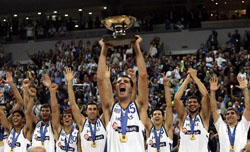
Greece wins the EuroBasket 2005.
The years 1999–2002 were marked by an obvious decline of Greece. The beginning of this era was the shocking 16th and last place of the team in the final standings of the EuroBasket 1999, having sufferred three defeats in the preliminary round. Consequently, Greece was absent from the 2000 Olympics. In the next European championship in 2001, the Greek team was placed 9th, thus failed to qualify for the 2002 FIBA World Championship. The revival of Greece started in the EuroBasket 2003, where an overhauled team finished 5th; the experiment was partly successful but the public was not very enthusiastic. The 2004 Olympics in Athens were considered as the biggest chance of hosts Greece to win their first Olympic medal but a close loss to eventual gold medalists Argentina in the quarter-finals stopped their way and they were finally placed 5th.

Greece with the silver medal at the 2006 FIBA World Championship.
Greece were considered a strong outsider for the medals at the EuroBasket 2005. They advanced from the group stage with two wins in three games and eliminated Israel and Russia to reach the semi-finals, where they faced France. The French were leading the score by seven points with only one minute left, Greece appeared to have no chance to pull out the win and one more lost semi-final was coming. However, the Greeks managed to get within a two-point distance and won 67–66 with a three-pointer by Dimitris Diamantidis with three seconds remaining, setting off a joyous celebration from the Greek side. At the final and in front of a raucous pro-Greece sold-out crowd of 20,000 at the Belgrade Arena, the Greeks defeated Germany in a convincing way with 78–62 and won the gold medal for a second time in their history.[4]
In the next year, the European champions won the 2006 Stanković Cup going undefeated in the tournament and defeating Germany again at the final with an impressive 84–47 win. In the 2006 FIBA World Championship, Greece were glazed to win a medal that had closely missed in their last two participations in the tournament and reached once more the semi-finals with a record of seven consecutive wins, some of them impressive. In the semi-finals, Greece defeated the popular odds-on United States in a 101–95 upset, rallying back from twelve points down, and qualified for the final, but they proved to be exhausted from their dramatic game with the Americans and lost 70–47 to Spain, ending up with the silver medal. Despite the loss the players were greeted enthusiastically by celebrating fans on their return to Greece, due to their first medal in a World Championship and their glorious win over the United States.
In the EuroBasket 2007, the defending European champions advanced to the semi-finals where they faced up hosts and world champions Spain, in a repeat of the final one year ago. Greece came close to take a revenge but finally lost 82–77 and played in the bronze medal game, where they succumbed to Lithuania. At the 2008 Olympic tournament, another last-second defeat 80–78 to Argentina in the quarter-finals led Greece to the 5th place once more. In the EuroBasket 2009, the national team was potently changed; with a bunch of young players and without key players Theodoros Papaloukas and Dimitris Diamantidis, as well as Panagiotis Vasilopoulos and Kostas Tsartsaris, the tournament was perceived as the turning point for Greece after their major recent achievements. However, after their fourth consecutive defeat to Spain in the semi-finals and sixty years after their first, and last, bronze medal they managed to take the podium in the third position against the odds, with a thrilling 57–56 win over Slovenia, ceasing the curse of being defeated in all bronze medal games throughout their history.
Roster
|
| Players |
Coaches |
| Pos. |
# |
Name |
Age - DOB |
Ht. |
Club |
Club nat. |
| 5.0 !C |
4 |
Vougioukas, Ian |
&000000000000002500000025 - May 31, 1985(1985-05-31) |
2.11 m (6 ft 11 in) |
Panathinaikos BC |
Greece ! |
| 5.0 !C |
5 |
Bourousis, Ioannis |
&000000000000002600000026 - November 17, 1983(1983-11-17) |
2.13 m (7 ft 0 in) |
Olympiacos BC |
Greece ! |
| 1.0 !PG |
6 |
Zisis, Nikos |
&000000000000002700000027 - August 16, 1983(1983-08-16) |
1.97 m (6 ft 6 in) |
Montepaschi Siena |
Italy ! |
| 1.0 !PG |
7 |
Spanoulis, Vassilis |
&000000000000002800000028 - August 7, 1982(1982-08-07) |
1.93 m (6 ft 4 in) |
Olympiacos BC |
Greece ! |
| 1.0 !PG |
8 |
Kalathis, Nikos |
&000000000000002100000021 - February 7, 1989(1989-02-07) |
1.98 m (6 ft 6 in) |
Panathinaikos BC |
Greece ! |
| 4.0 !PF |
9 |
Fotsis, Antonis (C) |
&000000000000002900000029 - April 1, 1981(1981-04-01) |
2.09 m (6 ft 10 in) |
Panathinaikos BC |
Greece ! |
| 4.0 !PF |
10 |
Printezis, Georgios |
&000000000000002500000025 - February 22, 1985(1985-02-22) |
2.06 m (6 ft 9 in) |
Unicaja Malaga |
Spain ! |
| 3.0 !SF |
11 |
Perperoglou, Stratos |
&000000000000002600000026 - August 7, 1984(1984-08-07) |
2.03 m (6 ft 8 in) |
Panathinaikos BC |
Greece ! |
| 4.0 !PF |
12 |
Tsartsaris, Kostas |
&000000000000003000000030 - October 17, 1979(1979-10-17) |
2.10 m (6 ft 11 in) |
Panathinaikos BC |
Greece ! |
| 2.0 !SG |
13 |
Diamantidis, Dimitris |
&000000000000003000000030 - May 6, 1980(1980-05-06) |
1.98 m (6 ft 6 in) |
Panathinaikos BC |
Greece ! |
| 3.0 !SF |
14 |
Kaimakoglou, Kostas |
&000000000000002700000027 - March 15, 1983(1983-03-15) |
2.05 m (6 ft 9 in) |
Panathinaikos BC |
Greece ! |
| 5.0 !C |
15 |
Schortsanitis, Sofoklis |
&000000000000002500000025 - June 22, 1985(1985-06-22) |
2.08 m (6 ft 10 in) |
Maccabi Tel Aviv B.C. |
Israel ! |
|
- Head coach
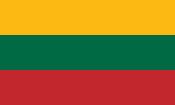 Jonas Kazlauskas Jonas Kazlauskas
- Assistant coach(es)
 Giannis Sferopoulos Giannis Sferopoulos
- Legend
- (C) Team captain
- Club field describes current pro club
|
Participation in international competitions
| Year |
Position |
W |
L |
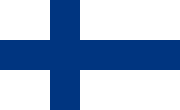 1952 1952 |
17th |
1 |
2 |
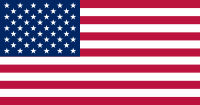 1996 1996 |
5th |
5 |
3 |
 2004 2004 |
5th |
4 |
3 |
 2008 2008 |
5th |
3 |
3 |
| Total |
4/17 |
13 |
11 |
FIBA World Championship
| Year |
Position |
W |
L |
 1986 1986 |
10th |
4 |
6 |
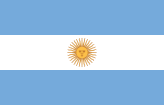 1990 1990 |
6th |
4 |
4 |
 1994 1994 |
4th |
4 |
4 |
 1998 1998 |
4th |
5 |
4 |
 2006 2006 |
 |
8 |
1 |
 2010 2010 |
10th |
3 |
3 |
| Total |
6/16 |
28 |
22 |
EuroBasket
| Year |
Position |
W |
L |
 1949 1949 |
 |
4 |
2 |
 1951 1951 |
8th |
2 |
6 |
 1961 1961 |
17th |
2 |
4 |
 1965 1965 |
8th |
5 |
4 |
 1967 1967 |
12th |
3 |
6 |
 1969 1969 |
10th |
2 |
5 |
 1973 1973 |
11th |
2 |
5 |
 1975 1975 |
12th |
1 |
6 |
 1979 1979 |
9th |
3 |
4 |
 1981 1981 |
9th |
2 |
6 |
 1983 1983 |
11th |
2 |
5 |
 1987 1987 |
 |
6 |
2 |
 1989 1989 |
 |
3 |
2 |
 1991 1991 |
5th |
3 |
2 |
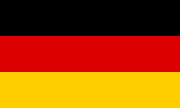 1993 1993 |
4th |
5 |
4 |
 1995 1995 |
4th |
5 |
4 |
 1997 1997 |
4th |
7 |
2 |
 1999 1999 |
16th |
0 |
3 |
 2001 2001 |
9th |
2 |
2 |
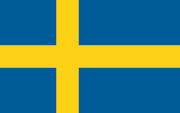 2003 2003 |
5th |
5 |
1 |
 2005 2005 |
 |
6 |
1 |
 2007 2007 |
4th |
5 |
4 |
 2009 2009 |
 |
6 |
3 |
| Total |
23/36 |
81 |
83 |
Mediterranean Games
| Year |
Position |
W |
L |
 1951 1951 |
4th |
3 |
3 |
 1955 1955 |
 |
3 |
3 |
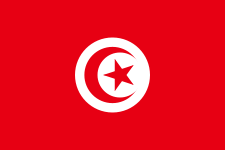 1967 1967 |
4th |
3 |
3 |
 1971 1971 |
 |
3 |
2 |
 1975 1975 |
5th |
2 |
2 |
 1979 1979 |
 |
5 |
0 |
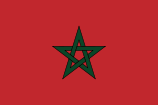 1983 1983 |
4th |
1 |
3 |
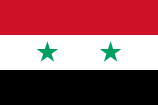 1987 1987 |
 |
4 |
2 |
 1991 1991 |
 |
4 |
1 |
 1993 1993 |
4th |
3 |
3 |
 1997 1997 |
4th |
4 |
2 |
 2001 2001 |
 |
5 |
1 |
 2005 2005 |
 |
3 |
2 |
 2009 2009 |
 |
4 |
2 |
| Total |
14/16 |
47 |
29 |
Memorable matches
| Date |
|
|
Tournament |
|
|
Place |
|
|
Match |
Score |
| May 1981 |
|
|
EuroBasket 1981 Challenge round |
|
|
Istanbul, Turkey |
|
|
 Greece - Greece -  Turkey Turkey |
85 - 84 |
| June 1987 |
|
|
EuroBasket 1987 Group stage |
|
|
Athens, Greece |
|
|
 Greece - Greece -  Yugoslavia Yugoslavia |
84 - 78 |
| June 1987 |
|
|
EuroBasket 1987 Semi-final |
|
|
Athens, Greece |
|
|
 Greece - Greece -  Yugoslavia Yugoslavia |
81 - 77 |
| 14 June 1987 |
|
|
EuroBasket 1987 Final |
|
|
Athens, Greece |
|
|
 Greece - Greece -  Soviet Union Soviet Union |
103 - 101 |
| 24 June 1989 |
|
|
EuroBasket 1989 Semi-final |
|
|
Zagreb, Croatia |
|
|
 Greece - Greece -  Soviet Union Soviet Union |
81 - 80 |
| 28 June 1993 |
|
|
EuroBasket 1993 Preliminary round II |
|
|
Berlin, Germany |
|
|
 Greece - Greece -  Spain Spain |
76 - 75 |
| 1 July 1993 |
|
|
EuroBasket 1993 Quarter-final |
|
|
Berlin, Germany |
|
|
 Greece - Greece -  France France |
61 - 59 |
| 8 August 1994 |
|
|
1994 FIBA World Championship 2nd Round |
|
|
Toronto, Canada |
|
|
 Greece - Greece -  Canada Canada |
74 - 71 |
| 30 June 1995 |
|
|
EuroBasket 1995 Quarter final |
|
|
Athens, Greece |
|
|
 Greece - Greece -  Spain Spain |
66 - 64 |
| 2 August 1996 |
|
|
1996 Summer Olympics 5th place game |
|
|
Atlanta, USA |
|
|
 Greece - Greece - 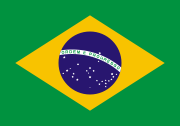 Brazil Brazil |
91 - 72 |
| 25 June 1997 |
|
|
EuroBasket 1997 Group stage |
|
|
Barcelona, Spain |
|
|
 Greece - Greece -  Turkey Turkey |
74 - 52 |
| 26 June 1997 |
|
|
EuroBasket 1997 Group stage |
|
|
Barcelona, Spain |
|
|
 Greece - Greece - 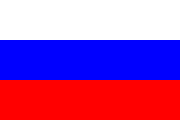 Russia Russia |
74 - 72 |
| 31 Aug 2001 |
|
|
EuroBasket 2001 Preliminary round |
|
|
Antalya, Turkey |
|
|
 Greece - Greece -  Italy Italy |
83 - 82 |
| 24 September 2005 |
|
|
EuroBasket 2005 Semi-final |
|
|
Belgrade, Serbia |
|
|
 Greece - Greece -  France France |
67 - 66 |
| 25 September 2005 |
|
|
EuroBasket 2005 Final |
|
|
Belgrade, Serbia |
|
|
 Greece - Greece -  Germany Germany |
78 - 62 |
| 20 August 2006 |
|
|
2006 FIBA World Championship Group stage |
|
|
Hamamatsu, Japan |
|
|
 Greece - Greece -  Lithuania Lithuania |
81 - 76(OT) |
| 22 August 2006 |
|
|
2006 FIBA World Championship Group stage |
|
|
Hamamatsu, Japan |
|
|
 Greece - Greece -  Australia Australia |
72 - 69 |
| 27 August 2006 |
|
|
2006 FIBA World Championship Round of 16 |
|
|
Saitama, Japan |
|
|
 Greece - Greece -  China China |
95 - 64 |
| 9 September 2006 |
|
|
2006 FIBA World Championship Semi-final |
|
|
Saitama, Japan |
|
|
 Greece - Greece -  USA USA |
101 - 95 |
| 9 September 2007 |
|
|
EuroBasket 2007 Qualifying round |
|
|
Madrid, Spain |
|
|
 Greece - Greece - 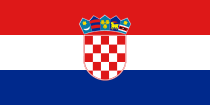 Croatia Croatia |
81 - 78 |
| 14 September 2007 |
|
|
EuroBasket 2007 Quarter-final |
|
|
Madrid, Spain |
|
|
 Greece - Greece - 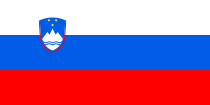 Slovenia Slovenia |
63 - 62 |
| 18 September 2009 |
|
|
EuroBasket 2009 Quarter-final |
|
|
Katowice, Poland |
|
|
 Greece - Greece -  Turkey Turkey |
76 - 74(OT) |
See also
- Greek national basketball team past rosters
References
External links
|
A1 Greek Basketball League 2010-2011 |
|
AEK · Aris · Colossus · Icarus · Ilissiakos · Iraklis · Kavala · Maroussi · Olympiacos · Panathinaikos · Panellinios · Panionios · PAOK · Peristeri · |
|
|
A Ethniki Greece and A1 Ethniki seasons |
|
|
1920–21 · 1921–22 · 1922–23 · 1923–24 · 1924–25 · 1925–26 · 1926–27 · 1927–28 · 1928–29 · 1929–30
1930–31 · 1931–32 · 1932–33 · 1933–34 · 1934–35 · 1935–36 · 1936–37 · 1937–38 · 1938–39 · 1939–40
1940–41 · 1941–42 · 1942–43 · 1943–44 · 1944–45 · 1945–46 · 1946–47 · 1947–48 · 1948–49 · 1949–50
1950–51 · 1951–52 · 1952–53 · 1953–54 · 1954–55 · 1955–56 · 1956–57 · 1957–58 · 1958–59 · 1959–60
1960–61 · 1961–62 · 1962–63 · 1963–64 · 1964–65 · 1965–66 · 1966–67 · 1967–68 · 1968–69 · 1969–70
1970–71 · 1971–72 · 1972–73 · 1973–74 · 1974–75 · 1975–76 · 1976–77 · 1977–78 · 1978–79 · 1979–80
1980–81 · 1981–82 · 1982–83 · 1983–84 · 1984–85 · 1985–86 · 1986–87 · 1987–88 · 1988–89 · 1989–90
1990–91 · 1991–92 · 1992–93 · 1993–94 · 1994–95 · 1995–96 · 1996–97 · 1997–98 · 1998–99 · 1999–00
2000–01 · 2001–02 · 2002–03 · 2003–04 · 2004–05 · 2005–06 · 2006–07 · 2007–08 · 2008–09 · 2009–10
2010–11
|
|
|
Basketball in Greece |
|
| Hellenic Basketball Federation |
|
| National teams |
Men · Women · Under-21 & Under-20 · Under-19 & Under-18 · Under-17 & Under-16
|
|
| League Competitions |
A1 Ethniki · A2 Ethniki · B Ethniki
|
|
| Cup Competitions |
Greek Cup
|
|
| Other |
HEBA · Greek All Star Game · Greek Basketball Awards · Greek Hall Of Fame · Greek Clubs · Acropolis Tournament · Greek players drafted by the NBA
Top Scorers: (A1 Ethniki · A2 Ethniki)
|
|
|
International basketball |
|
| FIBA · Olympics · World Championship · World Rankings · U21 World Championship · U19 World Championship · U17 World Championship · Teams · Asian Games · Commonwealth Games · Mediterranean Games · Lusophony Games · Diamond Ball · Stanković Cup · Acropolis Tournament · Marchand Cup · World University Games |
|
| Africa |
FIBA Africa – Africa Championship
|
 |
|
| Americas |
FIBA Americas – Americas Championship
|
|
| Asia |
FIBA Asia – Asian Championship
|
|
| Europe |
FIBA Europe – EuroBasket
|
|
| Oceania |
FIBA Oceania – Oceania Championship
|
|
| Note: The Under-21 Championship is no longer held. |
|
|
National basketball teams of Europe (FIBA Europe) |
|
Albania · Andorra · Armenia · Austria · Azerbaijan · Belarus · Belgium · Bosnia and Herzegovina · Bulgaria · Croatia · Cyprus · Czech Republic · Denmark · Estonia · Finland · France · Georgia · Germany · Gibraltar · Great Britain (England-Scotland-Wales) · Greece · Hungary · Iceland · Ireland · Israel · Italy · Latvia · Lithuania · Luxembourg · Macedonia · Malta · Moldova · Monaco · Montenegro · Netherlands · Norway · Poland · Portugal · Romania · Russia · San Marino · Serbia · Slovakia · Slovenia · Spain · Sweden · Switzerland · Turkey · Ukraine |
|
National sports teams of Greece |
|
|
|
|
|



